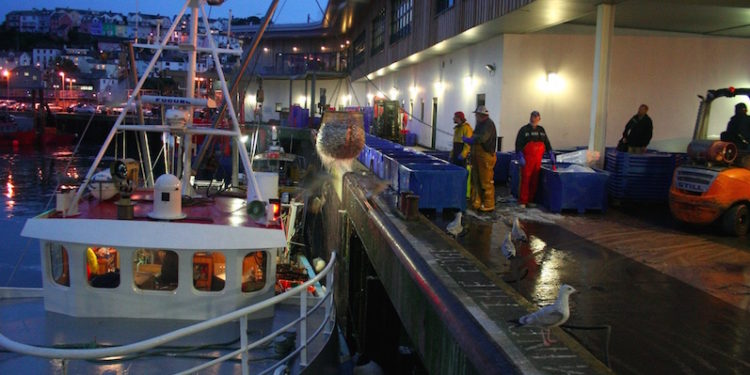Posting on the NFFO’s platform for opinions on both sides of the UK’s present Brexit debate leading up to the referendum, lawyer Heather Hamilton has set out reasons why leaving the EU could be less than positive for UK fishermen.
She commented that if fisheries minister and enthusiastic Leave supporter George Eustice is to be believed, even in the event of a UK exit from the EU, quotas, the landing obligation and fishing limits set at sustainable levels will remain cornerstones of fisheries policy.
‘If you believe the Brexiteers, large parts of the fishing industry support the UK’s exit from the EU, seemingly on the basis that this would mean that we are no longer subject to the Common Fisheries Policy (CFP). However, the arguments that they present are out of sync with the UK’s past actions and the current state of fisheries. In fact, to exit the EU would be to place the marine environment, fish stocks, and those fishers relying on them, in jeopardy.’
Heather Hamilton also said that keeping foreign fishing vessels out of UK waters would prove almost impossible to enforce, in addition to which there would remain the problem of historic fishing rights.
‘It would likely result in the UK having its access to waters and markets in these countries cut off. So, in reality, what will be necessary is negotiating a whole new set of fishing rights with these countries,’ she commented.
‘As a lawyer focused almost exclusively on the interpretation of fishing laws, I cannot understand how we would ever end up with a better deal. The process is likely to take years and to expect other Member States to welcome us to their waters and to their fish stocks with open arms is naive. After all, negotiations for previously shared assets rarely go smoothly in the aftermath of a break up,’ she suggested.
‘Many Brexit supporters have been pointing to the agreements made with Norway, Iceland and the Faroe Islands. However, it is important to remember that these countries are a lot more distanced from their neighbours than the UK. Somewhat confusingly, many Brexit supporters’ arguments also appear to be based on the idea of ‘UK fish’. For almost all species around the UK’s coasts, this is a false notion.’
‘Fish move, irrespective of political boundaries. This is particularly true for some of the UK’s most lucrative fisheries, such as those for mackerel, herring and cod.’
Heather Hamilton makes the point that many of the industry’s concerns about quota in fact stem from how the UK government itself distributes the quota available to it.
‘If quotas are retained, there is no evidence that the UK fishing industry will, all of a sudden, be in a more favourable position. In fact there is potential for the opposite,’ she said.









